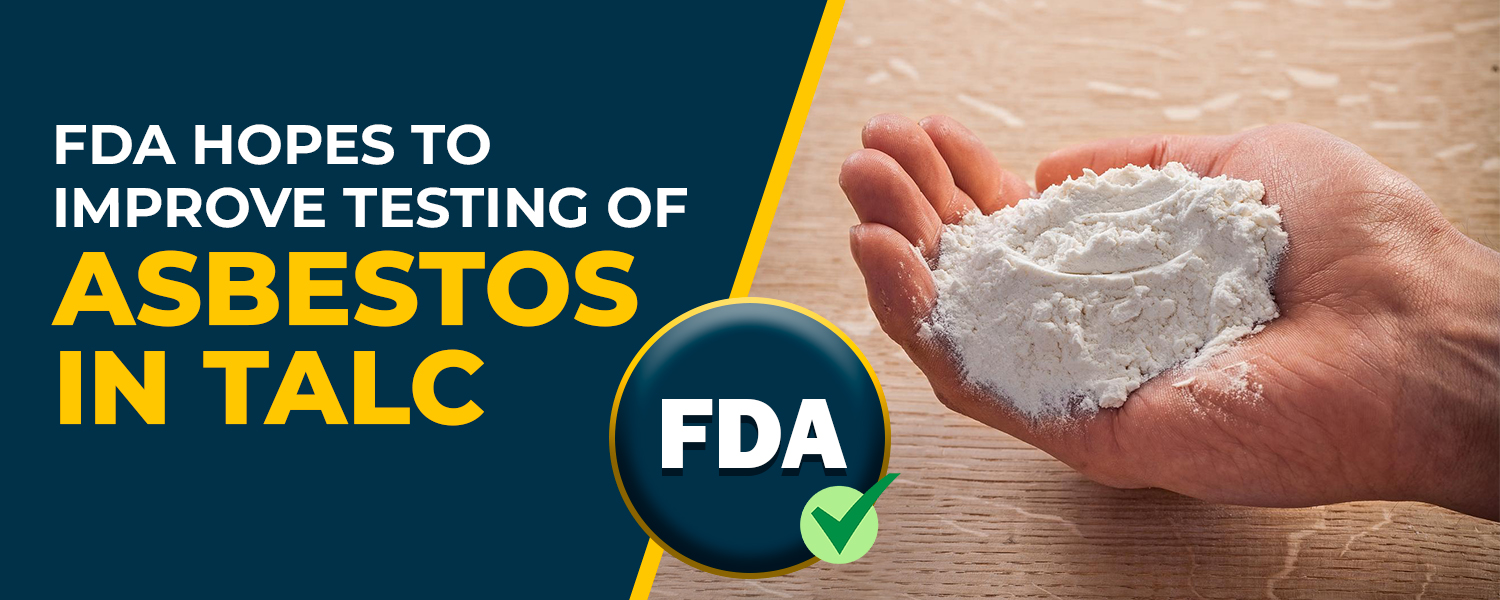FDA Proposes Standardized Asbestos Testing for Talc Cosmetics
FDA Proposes Standardized Asbestos Testing for Talc Cosmetics

Introduction
Amid growing concerns over asbestos exposure through cosmetic products, federal regulators have introduced a proposed rule to mandate standardized testing for asbestos in all talcum powder-based cosmetics.
FDA's proposal aims to protect consumers from asbestos exposure
The U.S. Food and Drug Administration (FDA) announced the proposal on December 26, aiming to protect consumers from unnecessary asbestos exposure.
Asbestos exposure linked to severe health issues resulting in thousands of lawsuits
Asbestos exposure has long been linked to severe health risks, including lung cancer, asbestosis, and mesothelioma. While first-world nations banned asbestos decades ago, the United States only recently implemented a complete ban. However, some asbestos contamination persists in unexpected places, such as talcum powder cosmetic products. This contamination has led to tens of thousands of talcum powder cancer lawsuits in recent years.
J&J's role
Johnson & Johnson, a prominent manufacturer of talc-based products, has faced Baby Powder and Shower-to-Shower lawsuits for nearly a decade. Juries have awarded significant damages, finding the company knew or should have known about the risks associated with using talcum powder near the genitals. Despite the risks, Johnson & Johnson continued promoting these products for adult women without adequate warnings.
FDA announces new methods to test the products
The FDA’s newly proposed rule would require talc-containing cosmetics to undergo rigorous testing for asbestos using methods like Polarized Light Microscopy (PLM) and Transmission Electron Microscopy (TEM), which include Energy Dispersive Spectroscopy (EDS) and Selected Area Electron Diffraction (SAED). These techniques are considered the most accurate for detecting asbestos. The rule would also mandate manufacturers to maintain compliance records.
Under the proposed regulation, any talc-based product that fails to meet testing standards would be classified as adulterated, making it illegal to sell. According to the FDA, these measures aim to strengthen consumer safety and ensure that talc-containing products are free from contamination.
What did the FDA's Office of Cosmetics and Colors say?
“For years, the FDA has been testing talc-containing cosmetics for asbestos and collaborating with federal partners to reduce risks,” said the director of the FDA’s Office of Cosmetics and Colors. “We believe these proposed testing methods are effective in detecting asbestos and ensuring product safety.”
FDA opened a public comment period
The FDA has opened a public comment period on the proposed rule, allowing feedback for 90 days after its publication in the Federal Register.
This regulatory move comes as Johnson & Johnson attempts to address ongoing talcum powder cancer litigation through controversial bankruptcy strategies. The company has faced tens of thousands of lawsuits alleging it failed to warn consumers about the risks of asbestos-contaminated talcum powder.
J&J's bankruptcy move
In an $8 billion settlement offer earlier this year, Johnson & Johnson established a new subsidiary, Red River Talc LLC, transferring all talcum powder-related liabilities to this entity. Red River Talc then filed for Chapter 11 bankruptcy protection in the Southern District of Texas. This strategy, known as the “Texas Two-Step,” has allowed Johnson & Johnson to temporarily delay further litigation.
This marks the company’s third attempt to use bankruptcy to resolve talcum powder lawsuits, following two previous filings that were dismissed. Critics, including the U.S. Department of Justice, argue that this latest move was made in bad faith and represents an abuse of the bankruptcy system.
Consolidated hearing on January 27
The case has been assigned to a U.S. Bankruptcy Judge in Texas, who will hold a consolidated hearing on January 27. During this hearing, objections to the bankruptcy plan will be reviewed, including allegations that the company’s reported support from 75% of claimants is not legitimate.
The proposed asbestos testing rule, coupled with the ongoing litigation against Johnson & Johnson, highlights the need for stricter oversight in the cosmetics industry and greater accountability for manufacturers. The FDA’s actions aim to protect consumers from preventable risks and ensure the safety of products on the market.
Neural IT specializes in drafting compelling demand letters to secure swift compensation and hold negligent manufacturers accountable. Contact us today to take the first step toward justice and ensure your clients' rights are protected.




